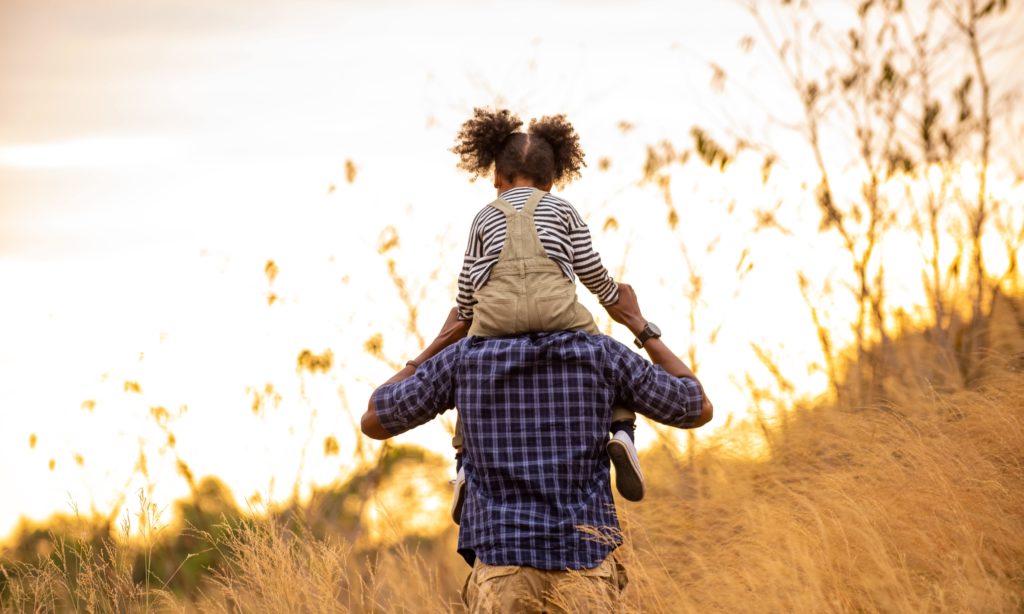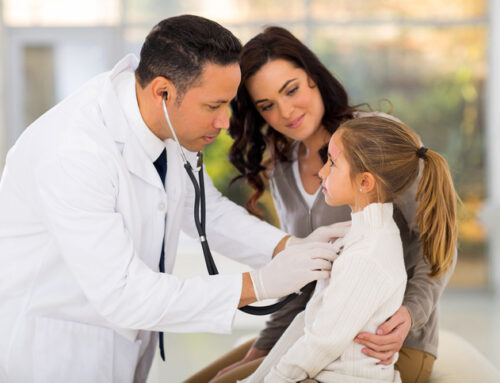In our efforts to shine light on the importance of mental health awareness in children, one TopLine MD Alliance affiliated pediatrician details examples of what parents may be facing during these times. The age, gender, and experience of the patients described in this article are fictitious.

My first patient of the afternoon sits silently on the exam table with his shoulders hunched forward. He is twelve years old and I’ve been his physician since birth. When I ask him what’s going on, he just stares at his navel as he rocks back and forth. His mother then blurts out that her son told a friend at school that he wants to kill himself, as tears splash down her cheeks.
My next patient is an eleven-year-old visiting for my sports physical. I examine her and discover linear wounds on her inner thighs. When I ask if she’s harming herself, she says that cutting makes her feel better.
My final patient of the day is thirteen years old with constant headaches. I carefully examine her and her results are normal. When I ask how her moods have been, she starts to cry. Her mother lets me know that she barely leaves her room and she can’t sleep and refuses to get up for school.
Since the COVID-19 pandemic, there has been a surge in mental health emergency room and primary care visits. U.S. News & World Report described the children’s mental health crisis of 2021 as the “next wave in the pandemic”.
Knowing this information, consider your children and your family. Have mental health issues impacted them, and if so, how? Parents are in a powerful position to foster mental health within their family unit. Research supports a myriad of practices that can serve to support mental health. As you read the article below, consider what you can do to foster mental health within your family, and remember, even small changes can make a big difference.
Hope is being able to see that there is light despite all of the darkness. – Desmond Tutu
A 2020 USA Today article stated, “decades of research identify hope as a robust predictor of mental health.” An optimistic attitude is often associated with beneficial changes in brain chemistry, through the release of natural painkillers like endorphins and enkephalins. As emphasized in the book Making Hope Happen by Shane Lopez, hope is not passive but rather a chosen mindset.
You may be asking yourself – how can you intentionally infuse daily doses of hope into your family? First of all, you can choose to speak words of affirmation and encouragement. You can share stories of human resilience and kindness with family members. You can try turning off disturbing programming and turn on uplifting music and inspiring documentaries. Finally, you can schedule short weekly family meetings to establish goals, plan outings or road trips, and celebrate accomplishments.
Laughter is the best medicine. – Proverb
According to a July 2021 Mayo Clinic Newsletter, “when it comes to relieving stress, more giggles and guffaws are just what the doctor ordered.” Other scientific studies have also found that humor is associated with decreased levels of stress hormones and increased levels of pleasure-producing dopaminergic hormones.
Laughter can both bond family members and heal wounds. As you integrate humor into your home, try to select jokes and programs that are not disparaging to others. Also, remember to laugh at yourself whenever possible because laughing at yourself has been found to reduce your fight or flight response and help diminish anxiety.
Let gratitude be the pillow upon which you kneel to say your nightly prayer. – Maya Angelou
Numerous scientific studies demonstrate the physiologic benefits of prayer, meditation, and gratitude. Dr. David Spiegel, chair of psychiatry at Stanford University, found that prayer and meditation involve the deeper parts of the brain associated with relaxation and self-soothing. Other scientific studies on brain imaging and brain chemicals have found lasting changes in brain physiology in those who pray and meditate. Dr. Michael McCullough, University of Miami researcher, documented the physiologic benefits of gratitude and concluded that gratitude has dramatic and lasting effects in daily life, as it promotes a sense of well-being, can lower blood pressure, and facilitate sleep. Gratitude also improves immune system function, a noteworthy fact during the pandemic.
Integrating gratitude, prayer, and/or meditation into your family’s busy schedule will require effort, planning, and determination. Select a daily five-ten-minute time slot and choose a convenient location. Start your group time with gratitude and share a breathing meditation or spoken prayer. Find what works for you and strive to be consistent. With regular practice and persistence, prayer/meditation/gratitude will become habits that will add calm and ease to your steps.
Healthy habits are learned in the same way as unhealthy ones – through practice. – Wayne Dyer
It’s important to establish a consistent routine for healthy family meals, exercise, and bedtime. Numerous studies show that teenagers with regular family mealtimes demonstrate less depression and anxiety. Family mealtimes can be at any time of the day and should be at least three times per week. Try to make mealtimes conflict-free zones, choosing to discuss problems and conflicts at other times. Create your meals from fresh ingredients and allow family members to participate in meal preparation.
You can also be an example for your children by exercising with them. The CDC recommends 45-60 minutes of exercise, five days per week, and countless scientific studies demonstrate surges in natural pain killers, such as endorphins with exercise. Consider simple inexpensive exercise ideas such as a daily walk, virtual yoga class, hula hoop, or jump rope. A fun exercise routine can bond family members, teach discipline, promote confidence, and improve cardiovascular and musculoskeletal health.
Lose yourself in the service of others and you will find yourself. – Gandhi
Numerous studies show that people who perform acts of service to others experience lowered blood pressure and improved emotional wellbeing. This can be as simple as scheduling a weekly family service hour or buying supplies and making handmade cards for someone who needs encouragement. Other ideas include arranging flowers, preparing meals for an ill neighbor, participating in an environmental cleanup, or walking a neighbor’s dog. Start with small, achievable tasks and establish a consistent time to complete them. Once completed, be sure to celebrate your accomplished projects.
In The Alchemist book by Paulo Coelho, he writes, “The simple things are the most extraordinary things, and only the wise can see them.” Take inspiration from this and choose a few simple ideas to support the mental health of your family. Write them on your weekly calendar and repeat them over and over; repetition creates healthy habits.
Most importantly, choose not to ignore mental health issues when they arise. Ignored small problems may become bigger problems in the future. If you suspect that your child is suffering mentally, make an appointment with your pediatrician to discuss appropriate referrals to a mental health professional. Early recognition and treatment of mental health issues can make a tremendous difference.
References
- Leeb RT, Bitsko RH, Radhakrishnan L, Martinez P, Njai R, Holland KM. Mental Health–Related Emergency Department Visits Among Children Aged <18 Years During the COVID-19 Pandemic — United States, January 1–October 17, 2020. MMWR Morb Mortal Wkly Rep 2020;69:1675–1680.
- Howley, Elaine K. “Children’s Mental Health Crisis Could Be the next ‘Wave’ in the Pandemic.” US News and World Report, 4 Mar. 2021.
- Dastagir, Alla E. “Why It’s so Important to Hope.” USA Today, 10 Oct. 2020.
- Lopez, Shane J. Making Hope Happen: Create the Future You Want in Business and Life. Free Press, 2013.
- Mayo Clinic Staff. “Stress Relief from Laughter? It’s No Joke.” Mayo Clinic . Org, 29 July 2021.
- Savage, Brandon, et al. “Humor, Laughter, Learning, and Health!” Advances in Physiology Education, vol. 41, no. 3, 5 July 2017.
- Spector, Nicole. “This Is Your Brain on Prayer and Meditation.” NBC News, 20 Oct. 2017.
- McCullough, Michael, and Robert Emmons. “Counting Blessings vs Burdens: an Experimental Investigation of Gratitude and Subjective Well-Being in Daily Life.” Journal of Personality and Social Psychology, vol. 84, no. 2, 2001, pp. 377–389.
- Anderson, Jill. “Harvard Edcast: The Benefit s of Family Mealtimes.” Harvard Graduate School of Education, 1 Apr. 2020.
- “Healthy Sleep Habits: How Many Hours Does Your Child Need?” HealthyChildren.org, https://healthychildren.org/English/healthy-living/sleep/Pages/Healthy-Sleep-Habits-How-Many-Hours-Does-Your-Child-Need.aspx.
- Physical Activity Recommendations for Different Age Groups.” Centers for Disease Control and Prevention, Centers for Disease Control and Prevention, 29 July 2021, https://www.cdc.gov/physicalactivity/basics/age-chart.html.
- Irani A. Positive Altruism: Helping that Benefits Both the Recipient and Giver. ScholarlyCommons. https://repository.upenn.edu/mapp_capstone/152. Published 2020.
- Coelho, Paulo, et al. The Alchemist. Harper Luxe, an Imprint of HarperCollins Publishers, 2014.
 Dr. Karen Lee Kuhn is a proud member of the TopLine MD Alliance practicing Pediatrics in Miami Dade County.
Dr. Karen Lee Kuhn is a proud member of the TopLine MD Alliance practicing Pediatrics in Miami Dade County.
The TopLine MD Alliance is an association of independent physicians and medical practice groups who are committed to providing a higher standard of healthcare services. The members of the TopLine MD Alliance have no legal or financial relationship with one another. The TopLine MD Alliance brand has no formal corporate, financial or legal ties to any of the affiliated physicians or practice groups.



